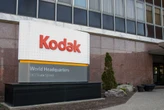Go to the Intuit Dome in Inglewood, the new state-of-the-art home of the L.A. Clippers basketball team, and you’ll be greeted by art created by people of color. Pieces include a massive mural that celebrates landmarks and notable figures in L.A. and Inglewood, and a blazing blue neon sign that reads, “We may have all come on different ships but we’re all in the same boat now,” a quote from the late civil rights leader Whitney M. Young Jr.
The cover of the Intuit Dome itself is a sleek futuristic web resembling a cross between a basketball and a spaceship poised for takeoff. It all creates a first impression of cultural resilience and forward motion, suggesting this $2 billion sports and concert palace was built, if not for the people, with the people in mind.
The reality is not quite that altruistic. The Intuit Dome is the latest addition to Inglewood’s growing city-within-a-city of stadiums, performance venues, and a casino that includes SoFi Stadium, the Kia Forum, as well as emerging retail and housing development on the grounds of the former Hollywood Park race track. It’s all situated in a few square blocks in the middle of town, a Las Vegas surrounded by Inglewood.
Intuit Dome is the pet project of Clippers owner and billionaire Steve Ballmer, who also owns the Forum. Ballmer has cast Intuit as a true “community partner,” committing $100 million to public coffers, mostly for affordable housing. Between that and adding new jobs and programs like financial and entrepreneurial education, the Dome expects to generate some $260 million per year in economic activity in Inglewood, something its developers are calling historic.
But it remains to be seen how much any of this will truly improve the city. Inglewood’s civic troubles include an affordable housing crunch that’s in part driven by all the glitzy development, and a school district that teeters on the brink of collapse. On the ground level, the Dome means even more traffic headaches on top of the rapidly multiplying traffic headaches for residents (including me) that started with the opening of SoFi in 2020. So while it may indeed be true that the Intuit marks Inglewood’s official arrival as the sports and entertainment capital of Southern California, it’s also raising a question: Is this what the last significantly Black city in Los Angeles County needs to thrive?
The city government certainly thinks so. Mayor James Butts has been touting Intuit Dome as the latest, perhaps greatest feather in a cap that many people thought Inglewood would never wear. He also says the venues are a boon for Inglewood’s economy: The city required Intuit’s construction work force to be 35% local hires, as it did with SoFi Stadium. Some $55 million dollars in wages, said Butts, have stayed in the city as a result. The mayor is now pushing for the construction of the Inglewood Transit Connector, a $2 billion people mover that would shuttle crowds from the Metro K Line stop to the venues—SoFi, the Forum, Intuit—a mile and a half away. It’s meant to alleviate the crushing traffic and ease pollution, but Butts also has in mind global events coming to town, chiefly the 2028 Olympics. The mayor sees it all as Inglewood rising to meet its future.
But any vision of the future must be shared by residents, especially Black residents who are justifiably wary of displacement. In 2018 the Uplift Inglewood Coalition, a grassroots organization advocating housing rights, sued the city for not prioritizing affordable housing on the public land it sold to Ballmer to build the Intuit Dome. The coalition lost the suit—but not the war.
Derek Steele, an organizer with the coalition, is now executive director of the Social Justice Learning Institute, located a few blocks away from the K Line stop. He said the failed lawsuit netted some important gains: In 2019, Inglewood passed a rent control law—the first one in local history—that’s still in effect (though not for newer apartment buildings). And Intuit contributed $100 million to the city as part of a community benefits agreement, $75 million going to affordable housing. Some of that housing is coming on line, notably the Sankofa Place at Centinela. Steele said the gains are important acknowledgement by the city and developers that the community is indeed part of development, not just a spectator to it. “Is it perfect? Is $75 million enough for housing? No,” he said. “Gentrification is something we still have to manage. But we’re taking steps in the right direction.”
For the record, Steele believes that siding with one of two opposing narratives—the venues are great for the city, the venues are terrible for residents—is a false choice. The reality is more nuanced, such as the fact that some small business owners are profiting from all the new activity, others are not. Similarly, some homeowners are seeing property values dramatically increase, while renters—the majority of Inglewood residents—are being squeezed.
The question of who and what should define progress is illuminated by the political battle over the Inglewood Transit Connector. The project is strenuously opposed by Representative Maxine Waters, whose district includes Inglewood. She’s said it’s an overpriced perk that will serve the concert venues and stadium, not the transportation and other needs of the real Inglewood. The ITC involves the city using eminent domain to clear another 44 local businesses for yet another “public good” that can’t help but feel like displacement and loss the community hardly needs more of. Waters has argued that shuttle buses are a far cheaper alternative—and far less glamorous than an elevated people mover—that could do the same job.
Also controversial, and symbolic of the sway that the venues have over Inglewood leadership, is the proposed state law AB 3206 that would allow the Intuit Dome to serve liquor until 4 a.m. The new “last call for alcohol” bill applies only to the VIP suite holders at Intuit Dome, giving it an exemption to state law that requires bars to close at 2. The bill has been criticized as a carve-out for a very special interest, namely Ballmer. It’s being sponsored by Assemblymember Tina McKinnor (D-Inglewood), elected in 2022 on a progressive platform and vowing to put people first. It’s tough to argue that’s what this is. (AB 3206 has cleared the Legislature and is awaiting Governor Gavin Newsom’s signature.)
Steele said that while he understands the skepticism, it’s useful to remember what Inglewood was like in 2008, when the economic crash further unraveled a city still suffering the loss of its marquee business, the L.A. Lakers, and the Forum. Sixteen years later that luster is back, and then some. “Those places aren’t going anywhere, they’re going to stay,” said Steele. “The people have to keep showing up to make sure the right things happen. But we have to continue to keep the door open.”
—By Erin Aubry Kaplan, Capital & Main
This piece was originally published by Capital & Main, which reports from California on economic, political, and social issues.









No comments